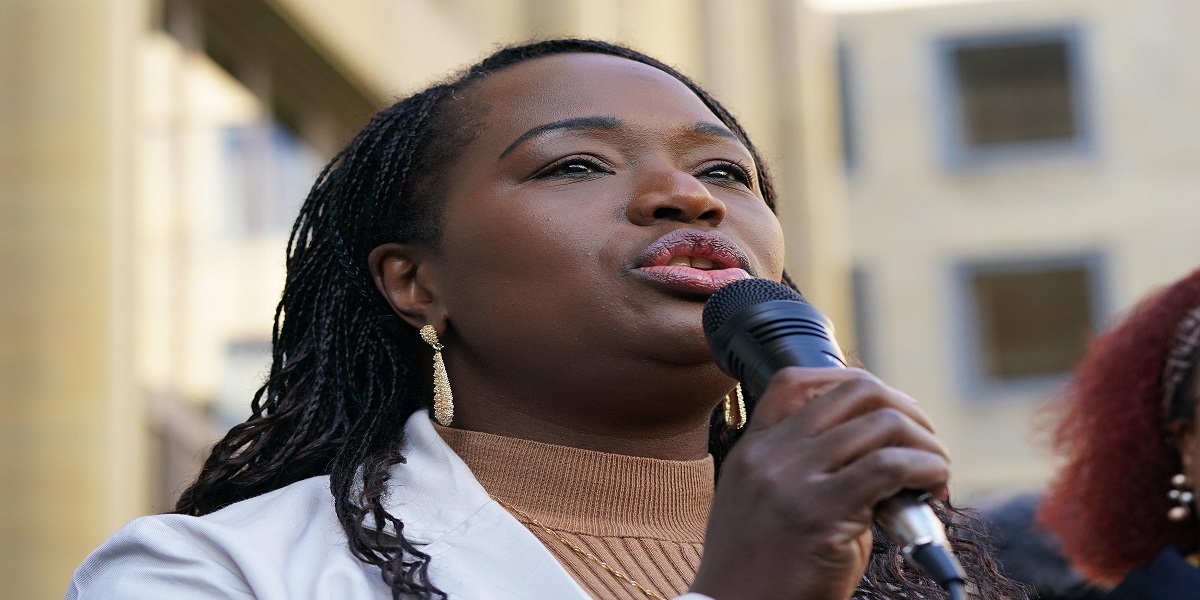According to the sister of a black man, named Sheku Bayoh, who died in police custody, Scotland is a racist country.
Sheku Bayoh, 31, died in 2015 after cops restrained him in Kirkcaldy, Fife.
Last week, at a public hearing about his killing, his sister Kadi Johnson stated that she no longer feels secure in Scotland.
She told The Sunday Show on BBC One Scotland that she now regretted urging her brother to relocate from London.
Mr. Bayoh’s family believes race was a factor in his death.
“Scotland is a place that I once loved and I felt safe in, but since my brother’s death I don’t feel safe anymore,” Ms. Johnson said.
Asked if Scotland was a racist country, she replied: “For me, I will say yes, I’m afraid I’ll say yes because of the way we have been treated.”
She claimed she had lost faith in the police since her brother’s murder and accused cops of not telling her the truth about his death.
However, she said that racism was also visible in other areas of life.
“There is still a lot of work to be done in Scotland in terms of racism,” she remarked.
“We who are there sense it. We are aware of what we face on a daily basis. It’s not like a white person, and we’ve seen it in our jobs and schools.”
According to a study issued by the organization Show Racism the Red Card, there were 2,251 reports of racist events in Scottish schools in the preceding three years.
Ms. Johnson believes that the issue should be addressed first in schools.
“For this to change, it starts from the grassroots, which is the schools,” she said. “Start from the schools and work your way up because it’s happening there.
“Black and ethnic minority children are experiencing that and it goes up to us, the adults.”
Chief Constable Iain Livingstone told the public inquiry into Mr. Bayoh’s murder last week that Police Scotland has to be “anti-racist.”
A year after the Kenmure Street demonstrations, when hundreds of people surrounded an immigration enforcement vehicle in which two Indian nationals were held, the public investigation was launched.
Lawyer Aamer Anwar, who also spoke on the show, stated that despite such events, there is still a “substantial minority” of racists in Scotland.
He said that in the previous 20 years, little had changed for persons of color in Scotland.
“I stood on the steps of the high court 20-odd years ago after the murder of Surjit Singh Chhokar – a racist murder that took 17 years to get justice – and asked how many black judges, how many black senior prosecutors, how many black senior police officers, how many black senior executives in public bodies?
“And the answer still today is pretty much zero. It hasn’t changed that much in reality for the black or Asian minority ethnic community.”
A spokesman for the Scottish government said it would await the findings of the independent inquiry before making further comment.
“Our thoughts are with the family and friends of Mr. Bayoh, who have shown remarkable dignity and perseverance during their five-year wait for an inquiry into his death,” he added.
The death of Sheku Bayoh
Police were summoned to Kirkcaldy street in the early hours of 3 May 2015 when Sheku Bayoh was observed acting strangely with a knife. He had previously used narcotics, according to pals, which had affected his behavior.
According to police reports, when cops arrived, he no longer had the knife, but he refused to comply with orders to get down on the ground.
Officers used excessive force on Mr. Bayoh, using CS Spray and batons. He then assaulted PC Nicole Short, who collapsed.
PC Craig Walker and PC Ashley Tomlinson later informed investigators that Mr. Bayoh assaulted PC Short with a severe stamping strike. However, information gathered by the BBC’s Panorama show revealed that these claims were perhaps fake.
Mr. Bayoh was restrained for five minutes before collapsing. A few whiles later, he was pronounced dead in the hospital.
For the latest International News Follow BOL News on Google News. Read more on Latest International News on oldsite.bolnews.com




















